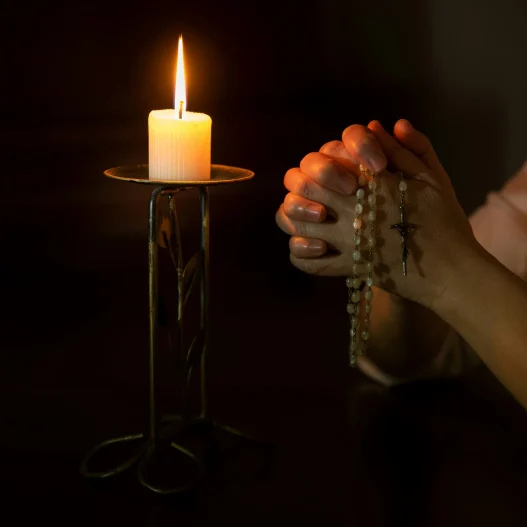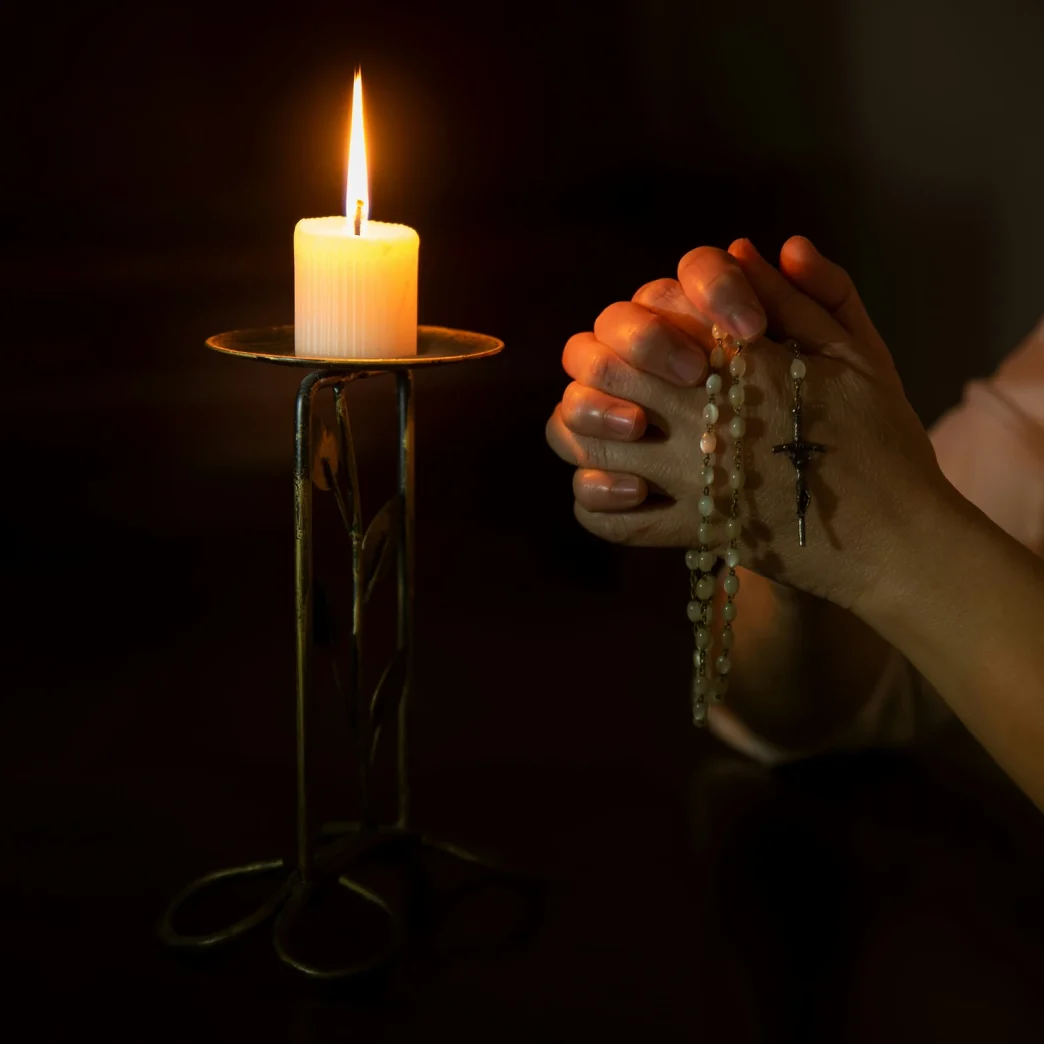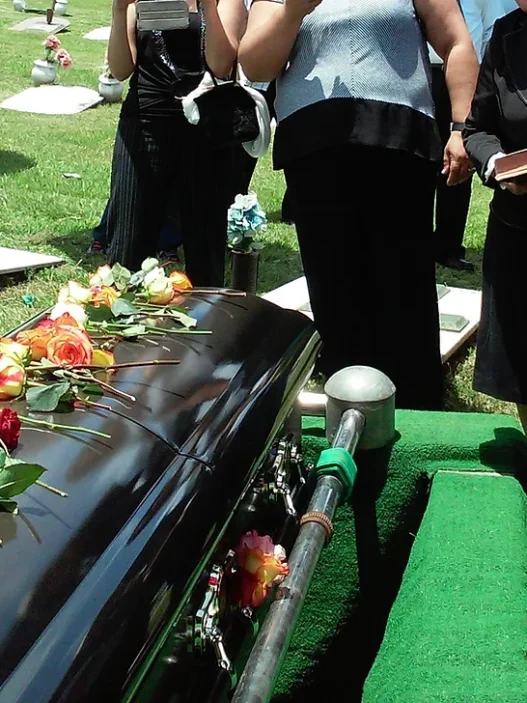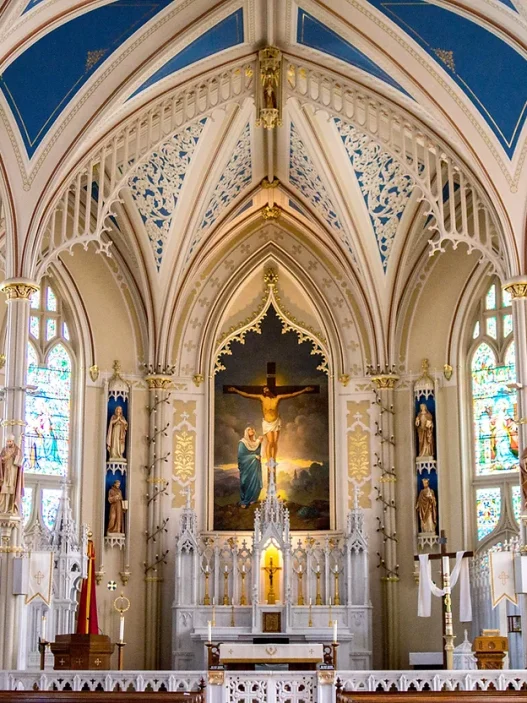In the Catholic faith, a “Rosary Funeral” or Rosary service is an integral part of honoring a loved one who has passed away. Rooted in centuries-old tradition, this service is a prayerful vigil, often held the night before the actual funeral Mass. The Rosary, which is a set of prayers recited using a string of beads, offers both solace to grieving families and a way to spiritually connect with the deceased.
Below, we provide an in-depth understanding of what a Rosary funeral entails.
Understanding the Catholic Rosary
The Rosary is a sequence of prayers meditated upon using a chain of beads. Catholics recite the Rosary to reflect on significant events in the life of Christ and His mother, the Virgin Mary. It consists of five decades (sets of ten “Hail Mary” prayers), each preceded by an “Our Father” and followed by a “Glory Be.” For Catholics, the Rosary serves as a powerful spiritual tool, bringing peace, comfort, and the hope of eternal life.
What Happens During a Rosary Funeral Service?
A Rosary funeral, also known as a Vigil Prayer Service, is typically held the evening before the formal funeral Mass. This prayer service brings together family and friends in a solemn atmosphere where they can remember the deceased and seek God’s grace for them. Below is a step-by-step outline of a traditional Rosary service:
1. Gathering of Family and Friends
The Rosary service usually begins with the gathering of the deceased’s loved ones at the church, funeral home, or family residence. This is an intimate moment where those grieving come together to offer support to one another.
2. Introduction and Opening Prayer
A priest or layperson typically leads the service, beginning with a brief reflection on the life of the deceased and an opening prayer. This sets the tone for a solemn yet hopeful gathering centered around faith and remembrance.
3. Recitation of the Rosary
The heart of the service involves the communal recitation of the Rosary. The prayers traditionally focus on one of the four sets of mysteries (Joyful, Sorrowful, Glorious, or Luminous), depending on the family’s preference and the day of the week. These mysteries are reflections on key moments in the lives of Jesus and Mary, symbolizing the journey from life, through death, to eternal glory.
Structure of the Rosary Prayers:
- The Sign of the Cross: The service begins with the Sign of the Cross, marking the sacredness of the prayers.
- The Apostles’ Creed: This is a statement of faith in God, Christ, and the Holy Spirit.
- Our Father: A prayer honoring God the Father.
- Hail Mary (10 times): A prayer asking for Mary’s intercession.
- Glory Be: A short prayer glorifying the Holy Trinity.
4. Moment of Silence
After the Rosary is completed, there is often a period of silence where attendees can offer private prayers for the deceased. This quiet reflection allows each person to individually connect with their memories and emotions.
5. Scripture Reading and Reflection
Sometimes, a reading from the Bible is included in the Rosary service, offering words of hope and consolation. The priest or leader may share a brief reflection on the reading, connecting it to the significance of faith and the promise of eternal life.
6. Final Blessing and Closing Prayer
The Rosary service concludes with a closing prayer, in which attendees ask God to receive the soul of the deceased into His eternal kingdom. The leader may also offer a final blessing to the family and friends, asking for strength and comfort in the days ahead.
7. Sharing of Memories
In some cases, there is a short period following the formal prayers where loved ones can share memories of the deceased. This is an opportunity for storytelling, expressing love, and remembering the individual’s impact on those present.
The Purpose of a Rosary Funeral
The Rosary funeral serves both spiritual and emotional purposes. Spiritually, the recitation of the Rosary is a powerful form of intercession, asking for Mary’s prayers to bring the deceased into heaven. Emotionally, the service provides a structured and peaceful way for family and friends to come together, reflect, and find comfort in shared faith.
By focusing on the mysteries of the Rosary, attendees are reminded of the suffering, death, and resurrection of Christ, offering hope that the deceased is on the path to eternal life. The Rosary also helps guide those left behind in their own spiritual journey, providing a sense of closure and healing.
Why is the Rosary for a funeral said 10 times?
The prayer “Hail Mary” is repeated ten times in each decade. This repetition is significant for several reasons:
- Meditative Purpose: Repeating the “Hail Mary” helps create a meditative rhythm, allowing individuals to focus on the mysteries of Christ’s life and the life of the Virgin Mary while staying in prayerful reflection.
- Symbolism of Completion: The number ten in the Bible often symbolizes completeness or divine order. By reciting the “Hail Mary” ten times, the prayer cycle feels whole and meaningful.
- Focus on Devotion to Mary: The repeated “Hail Mary” highlights the Catholic devotion to the Virgin Mary, asking for her intercession and reflecting on her role in the life of Jesus and in the lives of the faithful.
Each set of ten prayers is called a decade, and the Rosary typically includes five decades, representing different key moments (mysteries) in the lives of Jesus and Mary.
Common Locations for a Rosary Funeral
- Church: Many Rosary services are held in a Catholic church, either in the main sanctuary or in a side chapel.
- Funeral Home: Some families choose to have the Rosary recited at the funeral home where the body of the deceased is present.
- Family Residence: In more intimate settings, the Rosary may be prayed at the home of the deceased’s family, allowing for a more personal and private gathering.
Conclusion
A Rosary funeral is a deeply meaningful and comforting tradition in the Catholic faith. It offers the opportunity for family and friends to gather in prayer, reflect on the life and eternal journey of their loved one, and draw strength from shared faith. Through the recitation of the Rosary, those who mourn find hope in the promise of eternal life, and the deceased is honored with prayers for their soul’s peaceful rest.
By attending or participating in a Rosary service, individuals find a sense of community and faith that extends beyond death, reinforcing the belief that life is not ended, but transformed into something eternal.



















